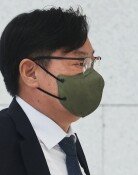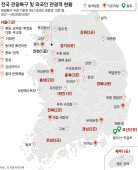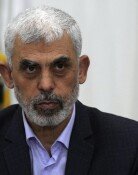2%-level growth predicted despite extra budget, rate cut
2%-level growth predicted despite extra budget, rate cut
Posted May. 24, 2013 06:11,
The state-run Korea Development Institute significantly cut this years economic growth target to 2.6 percent. The think tank predicted that the Korean economy will inevitably face low growth rate at the 2 percent level this year for the second consecutive year due to slumping domestic consumption and falling trade surplus caused by the depreciation of the Japanese yen despite massive economic stimulus measures, including the allocation of extra state budget and a cut in benchmark interest rate.
In its economic outlook released on Thursday, the Korea Development Institute adjusted downward this years economic growth target from 3.0 percent to 2.6 percent. Earlier the Strategy and Finance Ministry lowered this years economic growth target to 2.3 percent, while the Bank of Korea reduced the target to 2.6 percent. But these two organizations expect that this years economic growth rate will rise from the upper 2 percent level to the 3 percent level, if the allocation of extra state budget and cut in benchmark rate is reflected in the real economy. The institute also predicted that Koreas economic growth target for next year would reach 3.6 percent, which is lower than the projections by the Bank of Korea (3.8 percent), and the International Monetary Bank (3.9 percent). The think tank significantly cut this years economic growth target due to its judgment that domestic consumption remains in the doldrums amid mounting uncertainties surrounding the Korean economy.
Due to delayed recovery of the global economy, the external environment that the Korean economy is facing now is as bad as last year, when the economy only grew 2.0 percent, A source at the Korea Development Institute said. There are expectations that domestic consumption will rebound due to the allocation of extra budget and cut in benchmark rate, but it remains uncertain whether Korea will be able to achieve even the 2.6 percent growth target this year due to the depreciation of the yen among other factors.
In reality, Europe only posted minus 0.2 percent growth in this years first quarter despite massive quantitative easing policy put in place to shore up the economy, thus displaying negative economic growth for six consecutive quarters. China, which has been buttressing the global economy since the onset of the global economic crisis in 2008, is also witnessing various economic indicators rapidly deteriorating. The Korean economy has been further aggravated by the steep deprecation of the yen. As a result, the nations trade surplus has been cut nearly in half to 5.67 billion U.S. dollars in this years first quarter from 9.94 billion dollars in the fourth quarter of last year. Alarm has been set off on the export frontier, which was buttressing the Korean economy.
Some raise concern that as advanced countries, including the U.S., implement exit strategy from quantitative easing from this years second half, funds that were funneled to emerging economies including Korea could flight abruptly, causing major chaos in the financial market.
The problem is that given the structure of the Korean economy, which heavily depends on foreign markets for growth, deterioration of external environment could pose a stumbling block to the revitalizing of the economy through the allocation of extra budget and cut in benchmark rate. In fact, despite the new governments expressed determination to shore up economy, private consumption and facility investments are continuously backpedalling. Household credit sales, including credit card-based sales, declined 4.3 trillion won (3.82 billion dollars) in late March from the figure in end-December last year. The gap represents the biggest drop on a quarterly basis in nine years and six months since September 2003 (decline of 6.1 trillion won or 5.4 billion dollars), when the crisis of credit card bubble reached its peak. Sales at large discounters and department stores fell by 9.8 percent and 1.9 percent year-on-year in April, respectively, as economic stimulus measures have brought about little, if any, impact.
On the direction of government policy going forward, the Korea Development Institute said, Priorities in state agenda would be adjusted by taking into consideration plans on specific measures to mobilize funds. The institute thus recommends that the government put priority on reviving the economy, rather than on excessively pushing to keep election pledges on welfare policy.
Headline News
- N. Korea redefines S. Korea as ‘hostile state’ in revised constitution
- Samsung develops graphic DRAM with industry-leading capacity and speed
- Three questions allegedly leaked via text message during Yonsei Univ. essay test
- China to inject 340 trillion won in loans to support real estate sector
- Dodgers beat Mets to take 2-1 lead in NLCS







